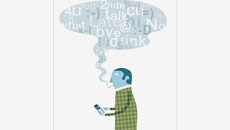Regularly monitoring your pulse after a stroke or the pulse of a loved one who has experienced a stroke can prevent a second stroke.
Screening the pulse is the method of choice for checking irregular heartbeat of people over 65 years who have never had a stroke.
"Our study shows it may be a safe, effective, non-invasive and an easy way to identify people who might need more thorough monitoring to prevent a second stroke," informed Bernd Kallmunzer from Erlangen University in Erlangen, Germany.
For the study, 256 people who had experienced a type of stroke called an acute ischemic stroke and the patients' relatives were given instructions on measuring the pulse to detect irregular heartbeat.
The measurements were then compared to a recording of electrical activity in the heart which showed that 57 of the participants had irregular heartbeat.
The study found that pulse measurement taken by doctors had a sensitivity of nearly 97 percent and a specificity of 94 percent in detecting irregular heartbeat.
Sensitivity is the percentage of actual positives that are correctly identified as positive, and specificity is the percentage of negatives that are correctly identified as negative.
For patients' relatives, the sensitivity was 77 percent and the specificity was 93 percent.
For patients taking their own measurements, 89 percent performed reliable measurements with a sensitivity of 54 percent and specificity of 96 percent.
False positive results occurred in six people and false negative results in 17 people.
"The low rate of false positives in this study shows that health care professionals, care givers and patients can be guided to use this simple tool as a first step in helping to prevent a second stroke," Kallmunzer explained.
The study was published in the online issue of Neurology.





